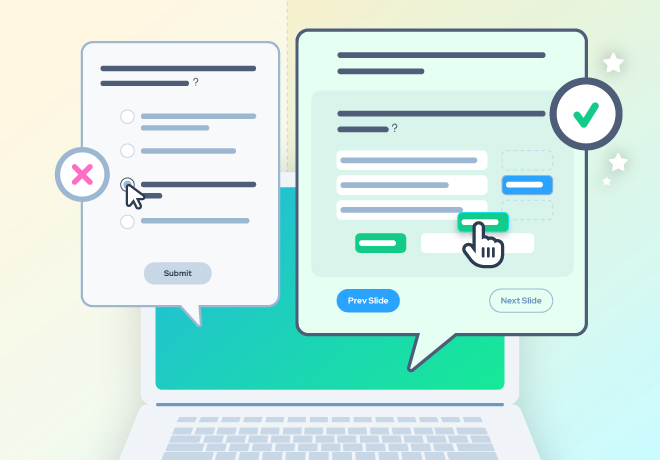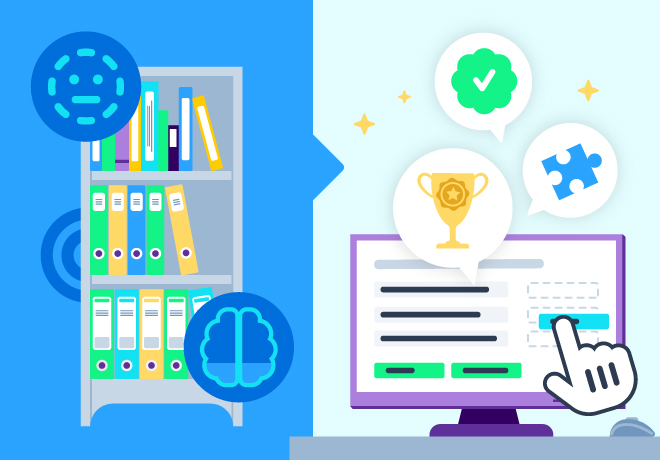
What is a learning consultant?

Related articles
Get valuable eLearning insights to your inbox.
Listen to Neovation’s Demystifying eLearning podcast generated with NotebookLM!
Listen to our podcast on your favorite platform!
As a full-service eLearning company, Neovation Learning Solutions sees customers who need a variety of training types — as well as many organizations with knowledge or skills gaps that cannot be filled by training alone. That’s why our relationships always begin with a consultation.
We play the role of learning consultants to new and long-term clients so we can be sure that we understand their needs, their workflow, their learner population, and their working and learning environment before we recommend a solution. This article explains what that means and why it matters.
Achieve your learning objectives by partnering with Neovation's learning consultants. Get a free quote today to start creating better training for your organization.
The role of a learning consultant
A learning consultant creates a bridge between the training your organization offers and the outcomes it wants: It ties training curricula and tools to clear, performance-based goals that reflect your business goals and needs.
The consultant also analyzes your organization to identify anything that might stand in the way of achieving those goals, whether gaps in performance, knowledge, or skills or resistance to training, to new software or tools, or to evolving processes.
The learning consultant then makes recommendations. They might recommend training — they might not. Sometimes a support solution, such as a microlearning-based performance support platform or a knowledge base, is more appropriate. These tools offer self-directed learners accurate, up-to-date information so they can solve problems without interrupting their workflow and simultaneously improve their knowledge and their performance.
The learning consultant makes recommendations about platforms and services as well as specific suggestions about types of training or performance support needed. They might help your organization choose an LMS or LXP — a learning management system or learning experience platform. The consultant could also provide administrative support or guide your organization through planning and up to a successful training launch.
The consultant gets to know your organization

The learning consultant will take a big-picture view and collect a lot of information before suggesting a solution. Let’s say you’ve asked your eLearning vendor to create training for your sales consultants that will help them learn and remember the features of your new line of garden-care products. In the role of a learning consultant as part of custom instructional design services, your contact at the eLearning company would not start by asking whether you want an eLearning module or a video. They would take a giant step back and look beyond this specific content request to gain an idea of how learning happens in your organization.
A training audit
Rather than jumping in to start designing an eLearning module, your learning consultant will start asking a lot of questions. They’d do an audit of the training content you have, and they would interview your training admins to determine what’s working and what’s not. This would entail looking at learner data and analytics as well as employee performance data.
They’d ultimately come up with a plan or proposal that, in addition to recommending specific training modules for sales consultants, also looks at performance support and knowledge retention strategies, instructional design strategies, learning culture, and more.
Understanding the organization
The consultant would take a look at how your operation works and where the learners fit in:
- Are the sales consultants employees? Franchisees? Part of an extended enterprise?
- What are these learners like — this could mean asking about age and technical experience but also learning preferences. Do they ask for mobile learning or prefer to train at their desks? Do they even have desks? Where do they work: onsite, at remote branches, independently? Or are they based at your site often but often on the road?
- How much do trainees know (or need to know) about how your company works?
At this point, your learning consultant might dig into the company’s goals and ask about KPIs that the executives are keen to change.
Turning to training
The audit would continue with questions about your online training infrastructure, such as:
- Do you use an LMS? Which one?
- What online training platforms do you use?
- Are employees able to use a desktop or laptop for their training? What about a mobile device?
- How much time do employees have each day or week for training?
The consultant would also touch on content — perhaps asking whether your organization has new product lines once a year, quarterly, or on some other schedule. They would want to know what types of training you offer or require and how frequently.

An experienced writer, editor, tech writer, and blogger, Pam helps you make sense of learning science and eLearning technology. She provides information you can use to drive improvements in your training effectiveness and ROI.
Become part of our L&D community
We publish a new learning hub article — full of useful, practical topics — weekly.
Not sure where where you want to start? Jump into one of our recently published articles and see where it takes you!








-svg.svg)
-svg.svg)
-svg.svg)
-svg.svg)